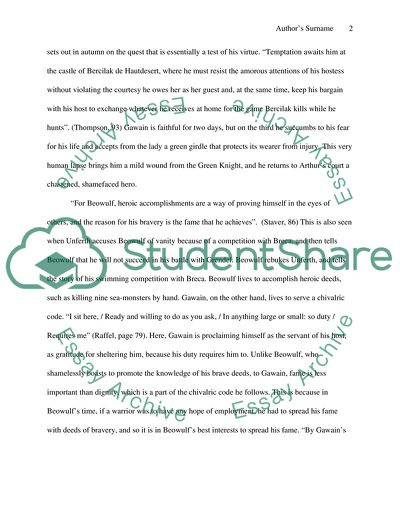Heroic Themes in Beowulf and Gawain and the Green Knight Book Report/Review Example | Topics and Well Written Essays - 1500 words. https://studentshare.org/literature/1729880-compare-themes-about-the-heroic-in-berowulf-and-gawain-and-the-green-knight
Heroic Themes in Beowulf and Gawain and the Green Knight Book Report/Review Example | Topics and Well Written Essays - 1500 Words. https://studentshare.org/literature/1729880-compare-themes-about-the-heroic-in-berowulf-and-gawain-and-the-green-knight.


